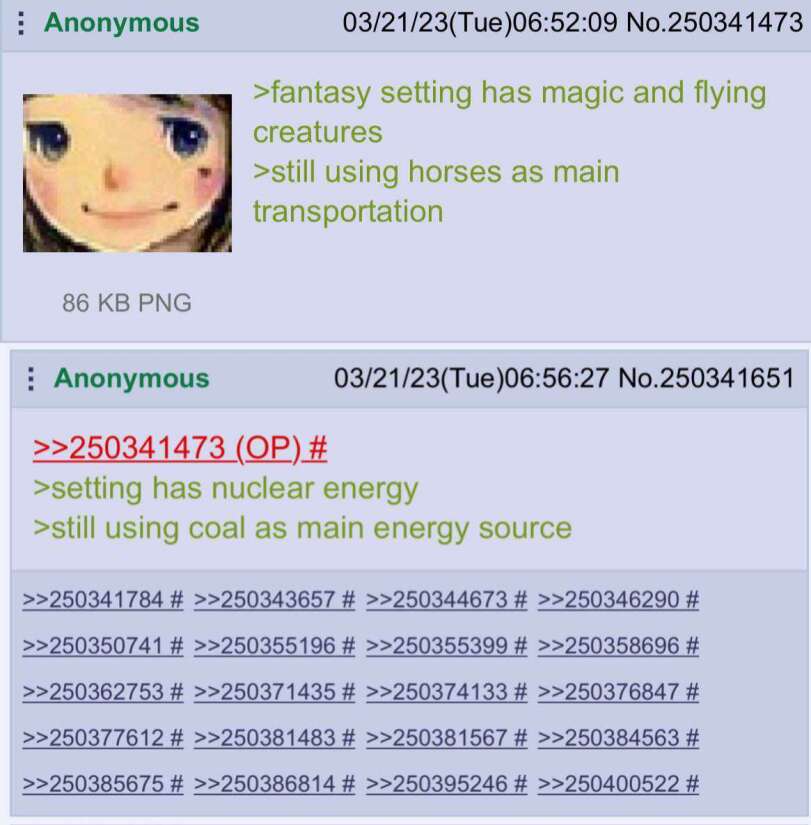this post was submitted on 29 Mar 2024
1226 points (97.7% liked)
Greentext
6840 readers
856 users here now
This is a place to share greentexts and witness the confounding life of Anon. If you're new to the Greentext community, think of it as a sort of zoo with Anon as the main attraction.
Be warned:
- Anon is often crazy.
- Anon is often depressed.
- Anon frequently shares thoughts that are immature, offensive, or incomprehensible.
If you find yourself getting angry (or god forbid, agreeing) with something Anon has said, you might be doing it wrong.
founded 2 years ago
MODERATORS
you are viewing a single comment's thread
view the rest of the comments
view the rest of the comments

Yes that is the problem. Maybe there's some chemistry that could help with this? I don't know I'm not a chemical engineer.
Also airplanes. Jet engines can run on hydrogen with little to no conversion. Problem there is the low density of hydrogen means airplanes need to be redesigned to have much larger tanks, and cryogenics need to be involved. Airbus has some ideas about this, but it's still very much in the concept phase.
But for transport trucks there's an interesting solution being tested in Germany where overhead wires are run over the highways, similar to overhead wires for trains. Trucks connect to that when on the highway. So the trucks would only need battery for making stops then they're off the highway and would recharge again when back on the highway. Seems like a good solution to me, but it's still being tested.
But hydrogen could replace natural gas for heating and for those who refuse to give up their gas stoves. But as you say, it's small so the gas pipes would need to be upgraded to have tighter seals for that to work.
Hydrogen is too inefficient for homes, the better bet imo is a hard sell for induction cooktops. Hydrogen is just too hard to transfer (doesn't compress nicely), inefficient to produce, and there's going to be leakage issues.
It's much better to produce that hydrogen very close to where it'll be used. I'm imagining areas with lots of factories and whatnot producing hydrogen with excess solar and using it on site. The losses would be worth it because it's probably cheaper than batteries (esp considering time to charge batteries, runtime of equipment, etc).